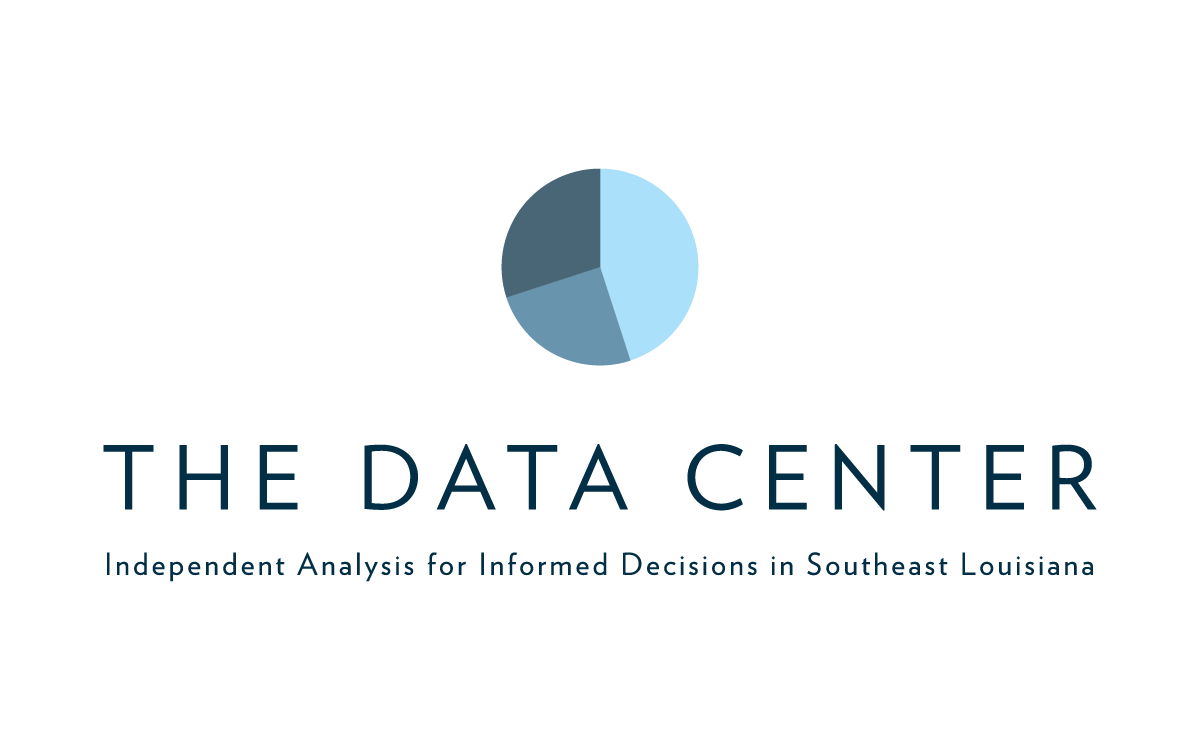
The New Orleans Prosperity Index: Tricentennial Edition Steering Committee
Published: Aug 11, 2017
The New Orleans Prosperity Index: Tricentennial Edition examines the demographics of New Orleans across its 300 year history, as well as historical systemic inequities, with a lens to how these inequities are playing out for New Orleanians today. The Data Center will analyze a rigorous set of indicators, establishing The Prosperity Index as a baseline to provide a common understanding of the region’s economic and equitable possibilities. The full report is accompanied by a collection of papers from more than a dozen local scholars. These reports assess the long reach of historical practices on contemporary policies and practices contributing to today’s racial disparities across multiple systems (criminal justice, education, housing, business ownership, health care, etc.), and provide recommendations for furthering future progress.
About
Thirteen years after Hurricane Katrina, New Orleans will celebrate its 300th anniversary. On many measures, New Orleans has done well. Jobs are above their 2008 levels, entrepreneurship is booming, and there is more private, public and philanthropic investment in the region than has been experienced in decades. Still, the prosperity these changes have produced has not been broadly shared. Barely half of black men are employed, the share of all receipts accruing to minority-owned businesses has remained stagnant at only 2 percent, and black households in the New Orleans metro earn 54 percent less than white households. Indeed, income disparities in the New Orleans metro are greater than the national average with African American households locally earning 20 percent less than African American households nationally. These stark racial disparities are particularly concerning for a future of New Orleans that includes broad based prosperity.
As leaders chart a course for New Orleans’ next 300 years, it is important to identify the historical and current policies and practices that have contributed to continuing disparities across education, health, housing, criminal justice, employment, banking, etc., and to highlight solutions that can reduce obstacles and ensure greater opportunities for all. Through The New Orleans Prosperity Index we hope to inform a future vision of New Orleans that equitably advances prosperity through rigorous, data informed analysis.
As companion pieces to this report, The Data Center will publish a collection of essays from more than a dozen local scholars. These reports will assess the long reach of historical practices on contemporary policies and practices contributing to today’s racial disparities across multiple systems (criminal justice, education, housing, business ownership, health care, etc.), and provide recommendations for furthering future progress. The essays will be published leading up to the release of the full report in mid-April, 2018, and will continue throughout the spring and summer of 2018.
Upcoming Dates
| Request for papers circulated | August 11, 2017 |
| Deadline for abstract submission | September 9, 2017 |
| Input from steering committee | September 13, 2017 |
| Notification of abstract selection | September 25, 2017 |
| Input on papers | September 28, 2017 |
| First draft of papers due | November 6, 2017 |
| External review | November 6 – December 11, 2017 |
| Final papers due | January 22, 2018 |
| Publication of papers begin | mid-March 2018 |
| The Prosperity Index published | mid-April 2018 |
Steering Committee
Name Organization
| Alison Hartman | The Data Center board of directors |
| Allen Square | Square Button Consulting |
| Andreanecia Morris | HousingNOLA |
| Andy Kopplin | Greater New Orleans Foundation |
| Annette Hollowell | Converge |
| Bill Hines | Jones Walker |
| Calvin Fayard | Fayard Law |
| Carol Bebelle | Ashe Cultural Center |
| Charles Beasley | Baptist Community Ministries |
| Erika McConduit-Diggs | Urban League of Louisiana |
| Joan Davis | Delgado |
| John Nicklow | University of New Orleans |
| Judy Reese Morse | City of New Orleans |
| Lanor Curole | United Houma Nation |
| Linetta Gilbert | Gilbert and Associates |
| Mark Romig | New Orleans Tourism Marketing Corporation |
| Mary Moran | Nuestra Voz |
| Matt Wisdom | Turbo Squid |
| Michael Fitts | Tulane University |
| Michael Hecht | Greater New Orleans, Inc. |
| Michael Smith | Hyatt Hotels & Resorts |
| Michael Williamson | United Way of Southeast Louisiana |
| Quentin Messer | NOLA Business Alliance |
| Reynold Verret | Xavier University |
| Sharon Courtney | The Data Center board of directors |
| Shawn Anglim | First Grace United Methodist Church |
| Walter Kimbrough | Dillard University |

